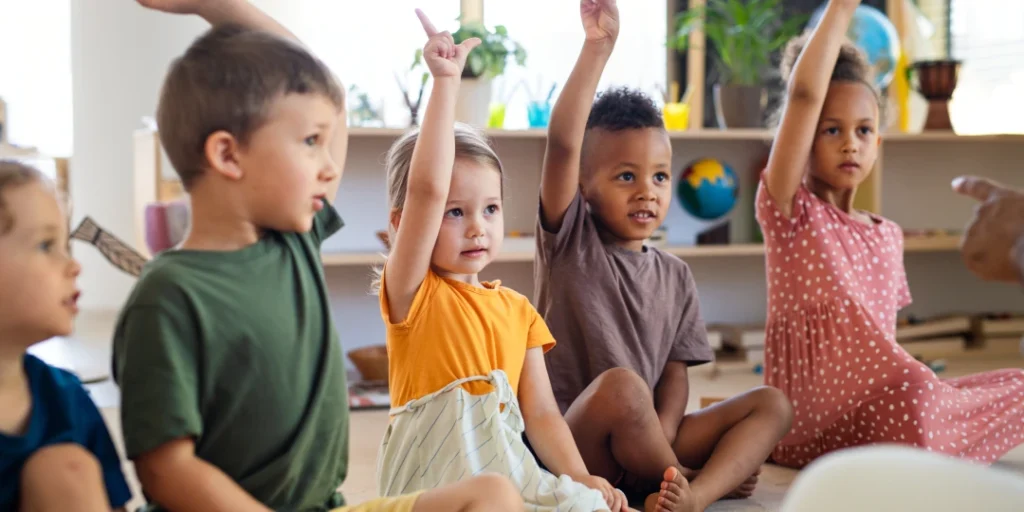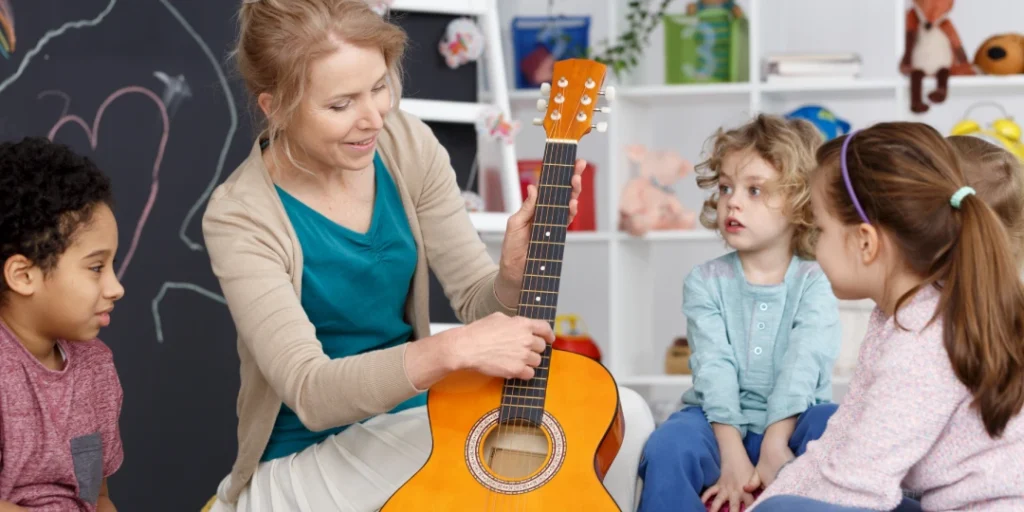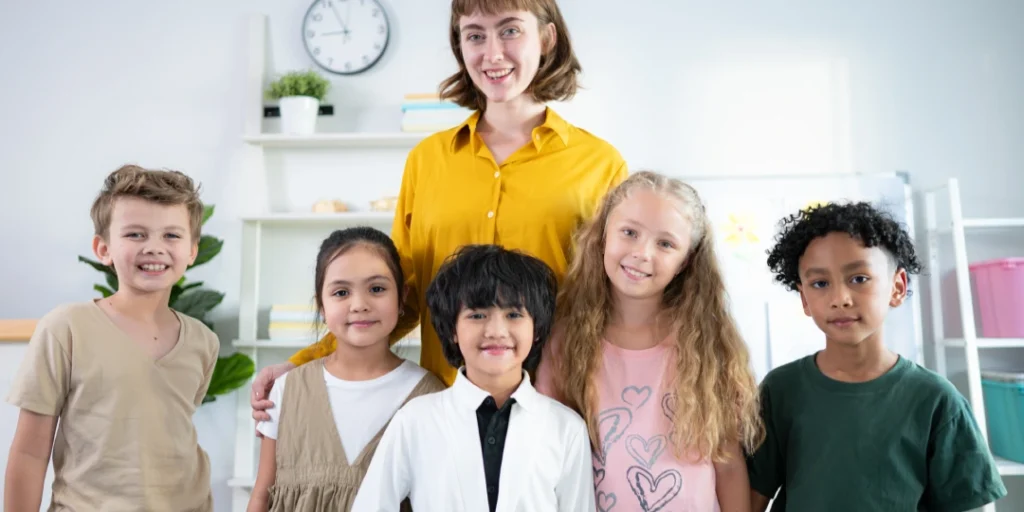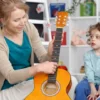![10 Inspiring and Empowering Lessons in Diversity from Murfreesboro Day School’s Multicultural Classrooms Introduction. In today’s interconnected world, cultural awareness and empathy are no longer optional skills—they are essential traits that help children thrive in diverse communities. As globalization continues to shape how […]](https://dayschools.org/murfreesboro/wp-content/uploads/sites/3/2025/05/Day-School-1.webp)
Table of Contents
Introduction.
In today’s interconnected world, cultural awareness and empathy are no longer optional skills—they are essential traits that help children thrive in diverse communities. As globalization continues to shape how societies interact, schools play a critical role in nurturing these values early on. Murfreesboro Day School recognizes that teaching children about different cultures and perspectives is a vital part of preparing them for the future. By fostering an environment where respect and curiosity flourish, the school helps cultivate young minds who are not only knowledgeable but also compassionate global citizens.
Multicultural learning at Murfreesboro Day School goes far beyond a single lesson or event; it is woven into the very fabric of the school’s philosophy and daily routines. This approach encourages students to embrace differences and find common ground with others, promoting social harmony within and beyond the classroom. The school’s mission focuses on creating an inclusive culture where every child feels valued, heard, and understood. This foundation allows children to develop a strong sense of identity while appreciating the richness of the wider world.
Ultimately, empowering young learners with a worldview grounded in inclusion equips them to navigate and contribute positively to diverse environments throughout their lives. Murfreesboro Day School’s commitment to multicultural education fosters a generation that celebrates diversity as a strength, not a challenge. This proactive stance ensures students are ready to meet the demands of an increasingly pluralistic society with empathy, confidence, and respect.
Understanding Multicultural Learning in Early Education
Multicultural learning is a comprehensive educational approach that intentionally integrates diverse cultural perspectives, histories, and traditions into Murfreesboro Day School classroom experiences. Unlike a superficial acknowledgment of differences, it seeks to deepen children’s understanding of the variety of ways people live, communicate, and solve problems. This type of learning helps children develop a broader worldview by engaging them with materials and activities that reflect multiple cultures and narratives, thereby challenging stereotypes and fostering respect.
In early childhood education, multicultural learning is especially powerful because young children are naturally open to exploration and new experiences. It involves more than just teaching facts about different countries—it encourages children to empathize with others by sharing stories, music, food, and celebrations that reflect diverse backgrounds. Through these immersive experiences, children begin to see the common humanity that connects us all while appreciating the unique qualities that each culture contributes to the social fabric.
At Murfreesboro Day School, multicultural learning is integrated throughout the day in varied and creative ways. Classrooms become vibrant spaces where cultural exploration is a continuous process, not an isolated event. Teachers facilitate meaningful discussions and activities that help children ask questions, think critically, and express themselves in culturally respectful ways. This dynamic approach ensures that students don’t just learn about diversity—they live it, forming attitudes that will shape their interactions well into adulthood.
Why Early Childhood Is the Ideal Time for Cultural Exploration
The first five years of a child’s life are a critical period for cognitive, social, and emotional development. During this time, children begin to form the core values that influence how they relate to others and understand the world around them. Introducing multicultural learning early capitalizes on this developmental window, shaping open-minded and empathetic individuals before biases and stereotypes can take root. Murfreesboro Day School understands the importance of reaching children at this impressionable stage to build a foundation of inclusivity and respect.
Young children have an innate curiosity about people and their surroundings, making them highly receptive to new ideas, languages, and cultural practices. Unlike adults, children tend to approach differences without judgment, accepting them as natural parts of life. By exposing children to a variety of cultural experiences—whether through stories, songs, or celebrations—the school nurtures their natural openness and encourages them to embrace diversity as something positive and enriching.
Furthermore, early multicultural education supports social-emotional growth by helping children develop empathy and perspective-taking skills. When children interact with peers and educators from diverse backgrounds, they learn to appreciate different viewpoints and cooperate more effectively. This early exposure to diversity at Murfreesboro Day School equips students with the social tools needed to thrive in diverse settings throughout their education and beyond, fostering lifelong attitudes of acceptance and collaboration.

The Murfreesboro Day School Approach to Multiculturalism
At Murfreesboro Day School, multiculturalism is not a peripheral concept or a box to check; it is a core element of the school’s identity and educational philosophy. The school actively integrates diverse cultural perspectives into every aspect of the learning experience, ensuring that students encounter inclusivity in meaningful, consistent ways. This commitment goes beyond celebrating diversity on special occasions; it is embedded in curriculum design, daily classroom interactions, and community values. Such an approach fosters an environment where all children feel seen, respected, and valued.
Educators and administrators at Murfreesboro Day School work collaboratively to cultivate a culture that honors both individual backgrounds and shared human experiences. Teachers receive ongoing support and training to thoughtfully incorporate multicultural principles in lesson planning and classroom management. This includes selecting culturally diverse materials, promoting respectful dialogue, and modeling inclusive behavior. The school also encourages students to share their own cultures and traditions, creating a dynamic and reciprocal learning environment that celebrates differences as strengths.
This holistic approach to multiculturalism prepares students to thrive in diverse societies by teaching them empathy, respect, and global awareness from a young age. By weaving these principles into the fabric of the school community, Murfreesboro Day School empowers children to become confident, compassionate, and culturally fluent individuals ready to engage thoughtfully with the world around them.
A Curriculum That Reflects a Diverse World
Murfreesboro Day School’s curriculum is thoughtfully designed to expose students to a wide range of cultures, encouraging curiosity and understanding about the world beyond their immediate surroundings. Lessons include the study of global geography, enabling children to connect with different regions and peoples. Traditional folktales from various continents enrich storytelling sessions, providing children with narratives that highlight diverse values, morals, and ways of life. This literary diversity encourages respect for different cultural perspectives and nurtures an appreciation for storytelling traditions worldwide.
In addition to stories, the curriculum incorporates art projects inspired by indigenous and international techniques, allowing children to explore creative expression through different cultural lenses. Through hands-on activities such as crafting, painting, and music, students gain tactile and emotional connections to diverse heritages. Thematic units often focus on continents, countries, or cultural groups, providing students with immersive and interactive learning experiences. They might explore traditional clothing, food, or festivals from around the globe, helping children recognize the beauty and complexity of cultural traditions.
This well-rounded curriculum at Murfreesboro Day School promotes not only intellectual growth but also social and emotional development. By engaging with diverse cultures through multiple disciplines, students develop open-mindedness and cultural sensitivity. The school’s comprehensive multicultural approach ensures that children grow into globally aware individuals who can appreciate and celebrate cultural diversity as an integral part of life.
Global Celebrations as Learning Opportunities
Global celebrations play a pivotal role in the multicultural initiatives at Murfreesboro Day School, transforming the classroom into a vibrant space of cultural discovery and shared joy. Holidays such as Lunar New Year, Diwali, Kwanzaa, Hanukkah, and Holi are embraced not simply as festive occasions but as rich educational opportunities. Each celebration is explored through age-appropriate activities that provide context and meaning, helping children understand the history, symbolism, and values behind the traditions. This hands-on approach makes learning both memorable and engaging.
During these celebrations, children participate in diverse activities like crafting traditional decorations, tasting authentic foods, singing songs, or performing dances connected to the holiday. These immersive experiences allow students to engage all their senses while fostering a genuine appreciation for the customs of others. Teachers carefully design these experiences to promote respect and curiosity, ensuring that celebrations are inclusive and representative of the cultural richness found within the school community and beyond.
These global celebrations also encourage cross-cultural dialogue among students and families, strengthening the school’s community bonds. By inviting families to share their own holiday traditions and stories, Murfreesboro Day School fosters a sense of belonging and shared learning. Celebrating together not only enriches students’ cultural knowledge but also reinforces the school’s mission to empower young minds through diversity and inclusion.

Books, Art, and Music from Around the World
Children’s literature is an incredibly powerful gateway to cultural understanding and empathy. At Murfreesboro Day School, storytime is carefully curated to include books written and illustrated by diverse authors, representing a wide array of family structures, traditions, and communities. These stories allow children to see themselves reflected in the pages while also discovering lives and experiences different from their own. This exposure helps broaden perspectives and builds an early appreciation for the richness of human diversity.
Beyond literature, the school integrates music and visual arts from around the globe into the learning experience. Students might dance to lively Afro-Caribbean rhythms, engage in rhythmic drumming sessions, or explore traditional instruments from various cultures. Art activities include techniques such as Aboriginal dot painting, Japanese origami, or African mask-making, allowing children to engage creatively with cultural heritage. These hands-on experiences foster sensory learning and reinforce cultural concepts in memorable ways.
Music, art, and storytelling together form a multisensory approach that deeply enriches the students’ understanding of culture. Through these mediums, children develop not only artistic skills but also empathy and respect for cultural expression. This immersive cultural education nurtures young learners’ curiosity and invites them to celebrate diversity in vibrant, joyful ways.
Fostering Respect and Empathy in Young Learners
Central to multicultural education is the nurturing of emotional intelligence, particularly respect and empathy. At Murfreesboro Day School, children are encouraged to listen actively and engage with curiosity when learning about others. Through guided discussions and classroom interactions, students learn to ask thoughtful questions and consider different perspectives without judgment. This early emphasis on respectful communication lays the groundwork for lifelong social skills.
Teachers at the school model inclusive language and behaviors consistently, demonstrating how to express kindness, patience, and understanding. By creating a classroom culture where every voice is valued, educators help children feel safe and empowered to share their own experiences. This foundation fosters emotional growth and encourages children to recognize and honor the feelings of their peers.
Collaborative group projects and cooperative play further reinforce the idea that differences are assets, not obstacles. As children work and play together, they discover how diverse viewpoints and talents enrich their shared experiences. These lessons in empathy and respect are essential for building inclusive communities where everyone feels connected and appreciated.

Training Educators to Teach with Cultural Competence
Murfreesboro Day School understands that effective multicultural education requires skilled and culturally competent teachers. To this end, the school invests heavily in ongoing professional development focused on equity, diversity, and inclusion. Educators participate in workshops and training sessions that address topics such as unconscious bias, culturally responsive teaching practices, and strategies for facilitating sensitive conversations in the classroom.
This commitment to educator growth ensures that teachers feel confident and prepared to navigate complex cultural topics with care and respect. They learn to identify and challenge their own biases while adopting instructional methods that honor the diverse backgrounds of their students. Such training empowers educators to create safe, welcoming environments where every child can thrive.
By fostering cultural competence among staff, Murfreesboro Day School strengthens the impact of its multicultural curriculum. Teachers become advocates for inclusion and equity, guiding students not only in academic skills but also in social and emotional learning. This leadership is crucial to nurturing a school culture where diversity is embraced and celebrated daily.
Engaging Families in the Multicultural Journey
Families play a crucial role in nurturing multicultural awareness and appreciation in young children. Murfreesboro Day School recognizes that learning about culture extends beyond the classroom walls and actively invites parents and guardians to become partners in this journey. The school encourages family involvement through classroom visits, cultural presentations, and shared celebrations, allowing children to connect what they learn with their own heritage and experiences. These interactions enrich the learning environment by bringing authentic voices and traditions into the daily curriculum.
In addition to in-person participation, Murfreesboro Day School leverages newsletters, digital communications, and community events to spotlight diverse family stories and cultural practices. Highlighting these personal narratives reinforces the school’s message that every culture holds value and deserves recognition. This open exchange helps create a sense of belonging and pride for all families, fostering mutual respect and understanding across the school community.
By engaging families as active contributors to multicultural education, the school builds a collaborative environment where children receive consistent messages of inclusion both at school and at home. This partnership strengthens children’s cultural identities and encourages them to embrace diversity as a natural, celebrated part of life. Together, families and educators cultivate a vibrant community united by shared learning and respect.

Long-Term Benefits of Multicultural Education
Early exposure to multicultural learning offers profound and lasting advantages that extend far beyond childhood. Students who experience diverse perspectives from a young age develop stronger critical thinking skills, as they learn to analyze information through multiple cultural lenses. This cognitive flexibility enhances problem-solving abilities and helps children understand complex social dynamics. Moreover, multicultural education fosters advanced communication skills by encouraging students to listen actively and express themselves thoughtfully in diverse settings.
Children immersed in multicultural environments are also more adaptable and open-minded. They become comfortable navigating different cultural contexts and show increased resilience when faced with change. These traits are invaluable in an ever-evolving global society. Additionally, multicultural education reduces the likelihood of internalizing harmful stereotypes by promoting empathy and challenging biases early on. This foundation supports healthier, more inclusive social relationships.
As these children grow, they often emerge as leaders who embody respect and cultural understanding. Their experiences shape a worldview that values collaboration, equity, and diversity—qualities essential for future innovators, citizens, and community builders. Murfreesboro Day School’s commitment to multicultural education thus prepares students not just academically but socially and emotionally for a successful, inclusive future.
Conclusion.
At Murfreesboro Day School, multicultural learning is fundamentally about equipping students to engage meaningfully with a diverse and interconnected world. The school recognizes that understanding cultural differences is not an endpoint but a lifelong journey that begins early. By instilling cultural awareness, empathy, and appreciation for diversity, Murfreesboro Day School lays the groundwork for thoughtful, responsible global citizenship from the very start of a child’s educational path.
Students are encouraged to view diversity as a source of strength and innovation. The school fosters a mindset that values curiosity about the world and embraces challenges as opportunities for growth. This approach helps children develop the confidence to respectfully navigate cultural differences and the critical skills necessary for collaboration in varied social and professional environments.
Ultimately, Murfreesboro Day School’s multicultural focus ensures that today’s young learners grow into adults capable of contributing positively to a global society. By nurturing inclusive attitudes and cultural fluency, the school helps shape compassionate, informed individuals who will lead with integrity and empathy in a diverse world. This vision of education empowers students to become agents of change, building bridges across cultures and creating a more equitable future for all.




